She/Her, Italian.If you ever looked at me once with what I know is in you, I would be your slave.
Don't wanna be here? Send us removal request.
Text
How to get in the writing mood and keep at it
(Not all of these may work for everyone, find what motivates you)
- Read something, especially something you enjoy or find very interesting
- Already have an idea? Write an elevator pitch about it. Or a summary as if your writing was a fanfic. Or a synopsis, or an "Out of context" description. Or an advertisement
- Start narrating things you do. Either outloud or mentally, but I find that in general this gets you out of the daydreaming mode, into writing mode, if you just start going "and then they swiftly sat down to look for that one thing they knew had to be somewhere around here"
- Get some music and start really imagining some scene. You can try to find something fitting for what you wanna write or try different moods and vibes and see which one inspires you
- do something that casually occupies your hands or body but lets your mind run free. For me this is car rides or bike rides (with music), but any sort of little tinkering or Stim toys for example can help crafting up ideas
- Scribble, write random words, gather sentences, they don't need to be related to anything you're writing, but get some word production going and you're already closer to getting started. Just write whatever your mind brings you and let your hand run free, loosen it up ykno
- Write about something very easy. This is like the narrating your actions part, but instead of mental or verbal it's just writing. Write "Then I wrote a sentence. Then I wrote another sentence, and another sentence after that" and so on. Just start with something mundane, obvious or easy and work your way from there
- Write character or environment descriptions. It's also an easy start. Or text a friend and tell them what you're thinking of writing. Or talk to them about your ideas or lack thereof. You can also use the rubber duck method (explain what your problem is to an object, like a rubber duck, as if it was your listener. Having to teach or explain something to a third person can often help solve what you're struggling with)
- Move your ass. I don't mean that you have to exercise, I mean that when you sit in the same spot for too long your brain can start stagnating. Move from one place to another and get some blood flowing, maybe do some stretching too, that's good for you
- Self care. Tired? Out of focus? Hungry? Aching? Been working too much already? I know these can be hard to figure out but personally for me, I find that if I feel really impatient about wanting to complete something but finding the process of doing so really stressful, wanting to take shortcuts and so on, I just need a break. Look for any signs of fatigue or irritation or any potential emotional stress that you might wanna take care of first, trust me it helps, I know it feels lame bc you just wanna get productive but rest is productive I promise.
Tangent: if you just really really wanna write some specific thing, but feel like you can't just start there, Just Start There. Don't torture yourself by forcing yourself to make or do more than what you're actually interested in, when you feel like doing more, you can do more, but if there's this ONE SCENE or something you REALLY WANNA get down, do that. The rest can come later, or never. That's completely fine. Make sure you're actually enjoying this
1K notes
·
View notes
Text
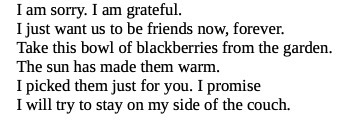

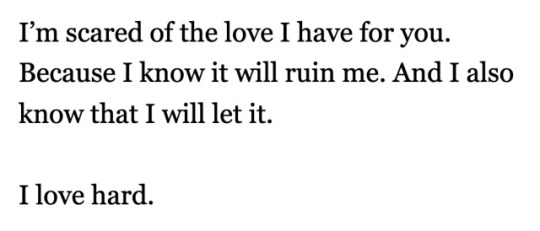

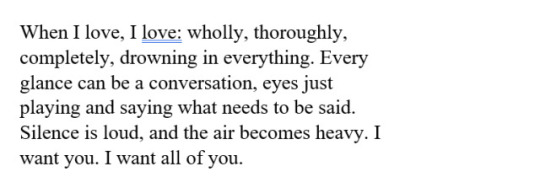




HAND ON MY HEART. HAND ON MY STUPID HEART
ross gay / susan sontag / unknown / richard siken / warsan shire / lana del ray / tturing / hera lindsay bird / richard siken
28K notes
·
View notes
Text
How to have a good internet experience in 8 easy steps
#1 - Stop having a bad faith interpretation of every thing you read
If you think something someone said might have been something you disagree with, instead of starting an argument, ask them to clarify or ask them specific questions about what they said
You will be so surprised to find that half the people you assume are being shitty or negative just didn't phrase what they meant very well
#2 - Learn to block people
It's free, it's easy, and it will save your life. Tired of someone tagging your stuff with characters from a fandom you don't like? Don't try to control them by telling them not to, just fucking block them. Less upsetting to them, less work for you, less inflammatory, more effective.
#3 - Don't share your entire backstory with strangers on the internet
No one is entitled to your information - not your pronouns, your age, your sexuality, your location, nothing.
Share the things that you're comfortable with, but remember that the more you share, the more vulnerable you make yourself to attacks. Like, do not share your triggers in your bio. You are giving abusers and harassers a to do list. Keep that shit private for your own safety.
You can get harassed, you can get stalked, you can get doxxed. Internet safety is real and necessary and the less we care about it, the more we set up future generations to get hurt through the internet
#4 - Learn to say, "It's none of my business."
Don't understand someone's desire to use neo pronouns? None of your business. Can't understand why someone is a furry? None of your business. Curious about how someone who talks about being poor can have a Starbucks in that last selfie they posted? None of your damn business.
If you don't like certain things on your dash, unfollow or block people. If you don't understand how someone can identify a certain way or do a certain thing or like a certain thing or feel a certain way or literally anything, just remember, it's none of your business.
If you have genuine questions from a place of good faith (i.e. what inspired you to use neopronouns?/what do you pronouns mean to you?) Go for it. But if you're only asking questions to draw negative attention to someone or make them feel bad or to other them, you're just being a nosy asshole.
Minding your own business is also good for you because - and I mean this genuinely - feeling entitled and superior is fucking exhausting. I know, because I've been 20 before. You will have a way better time online if you just stop caring about shit that doesn't concern you
#5 - Learn to lurk
Lurking is frequently seen as a bad thing, like someone who's lurking is somehow being creepy. The truth is, lurking is a great way to learn. More people should do it.
For example, if you're new to a community, spend some time consuming content and information from that community without saying anything. This goes for fandoms, queer spaces, disabled spaces, cultural spaces, etc.
Nothing is worse than being in a community for years and someone popping in for the first time in their life and airing their opinions loudly and with zero respect for the space. A great example of this is that post someone made about the leather pride flag. You know the one.
(If you don't, basically, someone said that the leather pride flag is embarrassing and insulting to the queer community and has no place at pride and then got schooled by hundreds of people about how the leather pride flag is one of the oldest flags in the queer community and leather daddies and leather dykes were the people on the front lines protecting other queer people from cops back in the 80s and 90s)
So basically, learn the history of a community, research your opinions before you decide they're your opinions, and keep your ignorance to yourself until you're not ignorant anymore. Not only is this better for community spaces, you won't have 9000 notifications of people telling you to shut the fuck up
Learning to lurk to educate yourself about a space also makes actually speaking in that space a lot easier
#6 - Stop believing everything you read
I'm not talking about stupid funny stories. Believe them - it's not hurting anything to get a laugh out of something that may or may not have happened.
I'm talking about news and current events. If you hear that some celebrity did something and there are no receipts, go and find the receipts or discard it. People spread misinformation on here all the damn time. It's like a game of telephone and, unfortunately, a lot of small creators end up getting slandered and canceled because of it.
#7 - Quit wasting energy on hating random shit
Being annoyed by a certain fandom is one thing, but actively hating things that other people do just because you're not into it is such a waste of your energy. Not only are you actively putting more negativity into the world, you're wasting your own time on things that upset you.
Focus your time and energy on the things you do like and quit scrolling through Tumblr user AnimeIReallyHate7648's discourse blog. You might think it's fun, but there comes a point where hating something goes from kind of fun to actually obsessive and unhealthy for you as a person.
#8 - Unlearn purity culture
This is a big one guys. What is purity culture? It's referenced a lot, but I think a lot of you don't know what it is.
In short, purity culture is when people take many nuanced situations and try to divide them into black and white categories. There's the Good category and the Bad category. The problem is, life is not in black and white. You can't put a neat line down the middle between good and bad. This kind of thinking is extremely regressive. Ask any therapist alive and they will tell you that black and white thinking is unhealthy and often a Symptom of Something.
So, what happens is, someone sees something on the good side and spots something they think is morally objectionable in it and says, "this can't be here, it needs to go to the Bad side." (Cancel culture). The problem is, people are always on the lookout for anything wrong in the Good - constantly looking for impurities so that they can completely sanitize things and therefore be free of sin. So they will look harder and harder and harder and keep moving things to the Bad side of the line until there's basically nothing left on the Good side.
This ends up meaning that perfectly good media is canceled because every character in it didn't make the perfect, right choice every time. It damages media in that it demands characters be completely flawless - something no human is. When a character does something that's actually problematic, even if the media doesn't condone the behavior, instead of engaging with it and using it as an opportunity to learn and teach other people why that wasn't okay, people who subscribe to purity culture throw the baby out with the bathwater, saying the entire piece of media should be canceled because its creators support the problematic action of that character (even if they don't).
This entire line of thinking is extremely unhealthy, heavily informed by Christianity, infantilizes adults, assumes no one can distinguish fiction from reality, and promotes censorship, which has a long and sordid history.
I could go on about this at length, so if anyone wants a full post, just let me know. But the point is, purity culture is bad for community, it's bad for media, it's bad for healthy emotional and intellectual development, it's bad for interpersonal understanding and empathy, and it's bad for you.
Unlearn purity culture and you will be a happier person. If all else fails, remember step #4.
57K notes
·
View notes
Text
War Water
What is it?
War Water is a particularly powerful bit of magic stemming from American witchcraft traditions in the South. Contrary to popular belief, war water is not rooted in Hoodoo but in European-influenced folk magic practices. Due to this, debates about which is the most “authentic” recipe for war water are unproductive. Folk magic practices in the early parts of white American history were not well documented and the specifics of these practices were likely kept within close-knit family circles. The result is that spells such as this one have always had quite a bit of variation. This lack of homogenization leaves us with many traditional recipes for spells such as war water and most of them do contain the grain of authenticity that many modern witches crave in their practice.
Tools and Ingredients
2 large glass jars, preferably with glass lids and rubber gaskets.
Distilled white vinegar
Salt, roughly 1/2 of a cup
A railroad spike or iron nails
A carbon steel hunting knife, stripped of its furniture (handles, etc)
Water
Process
Charge each item individually with intent.
Place the iron in one jar. Fill it with water and set it to the side. If the iron already shows signs of rusting that can speed up the process.
Heat the vinegar to just about boiling. Add salt and dissolve.
Stir it clockwise with the knife.
It helps to let this breathe for at least the first 24-48 hours, and then to give them a day or two of air every now and then after. When rust starts to form and tinge the water, give the jars careful swirls just to keep the rust suspended in the water and new oxide layers forming constantly.
Eventually, your railroad spike water will turn muddy looking and the knife-vinegar solution will turn almost black and you will see little flakes of metal swimming around in there if you look closely.
After a year or so you will have some pretty good product and then you can combine the two liquids, refill the jars, and start another batch.
Now, to finish it off, you can add any number of ingredients to augment its power. Black and red pepper, mustard or poppy seeds, devil's snuff, or gunpowder are some examples. The best thing, however, is your own urine.
Tips, Tricks, and Uses
You want to make sure to have a glass lid on this one or to change lids often because this stuff WILL eat through a regular Mason jar lid in no time War Water is often used to place a curse. War Water is a traditional and allegedly potent weapon during psychic warfare and witch wars. It can be used to reverse a curse and send it back to where it came from. War Water is not intended for consumption, rusted nails should be handled with care. These are simple standard recipes, they can be personalized and adapted as necessary to give the water more kick. Should mold or bacteria ever form, discard everything, including the jar, and start again from scratch.
347 notes
·
View notes
Text
Hexes Part 1
Dragons Blood Hex.
Many Plants/ Herbs/ Roots / Resins such as dragons blood are usually relied upon for their protective properties, but they can be twisted toward malevolent purposes too.
In the Solomon Islands, the dragons blood tree. Dracaena, its believed to have sprung from the grave of a sea spirit. A powerful plant, whose resin is most frequently used in protection rituals, this hex utilizes the trees leaves.
Wrap a lime and a piece of ginger root in a dracaena leave lay it in the path of your target, Should he or she step on or over it, their life will be filled with great distress.
Dead Mans Rope Curse
The Renaissance magician, Corneluis Agrippa, discussed this hexing tool. Use a rope to obtain nine measurements from a dead man’s corpse. Measure each of the following three times each.
From the elbow to the longest finger, From the shoulder to the tip of the longest finger, From the head to the toe.
Keep the rope. Anyone subsequently measured with it will suffer misery, misfortune or worse.
Bottle Hex
Place your targets photograph inside a bottle, write their name on a piece of paper and put inside the bottle, too (alternative you can write there name on the back of the photo) stuffy holly and ivy into the bottle and some black ink and war water. Seal the bottle shut and bury it upside down.
War Water.
Once Upon a time, this formula was a mainstay of folk healers, who used it to treat anemia. Although It’s medical uses are no longer popular. This remains a very important magical formula
War water is used.
To gain protection, This is an extremely aggressive forceful spiritual cleaner.
To Reserve a curse and send it back where it came from.
To place a curse. War water is a traditional and allegedly potent during psychic warfare and witch wars.
Standard Protection War Water.
Place iron nails in a mason jar, Cut iron nail are recommended because they rust very easily, but any iron nails may be used. Add enough water to cover the nails leave this within seven to 10 days. Although the jar is usually kept shut. It should be opened periodically to encourage oxidation. Once the rusting process begins, more water may be added, Keep the jar in a refrigerator or other cool area. Strain the water and use as need.
You may continue adding water to the original nails virtually indefinitely. Some people have a water water starter lasting years akin to a sour dough starter. However, should mold or bacteria ever form, discard everything including the jar and start again from the beginning.
Standard Malevolent War Water
Collect war water from a fierce thunderstorm in a jar. Add Rusty nails, Sulfur and some of your own urine. Store this in a cold, dry place until you heed it.
This version is used to either place or reverse a hex. The rusted nails from a Protective formula may be used to create the Malevolent version
1K notes
·
View notes
Text
How to live your *BEST* life during quarantine : achieve your goals from the comfort of your home!
So.. Schools are closed, everything is basically down and you’re up to at least 2 weeks of quarantine. You’ve bought your toilet paper, made your pasta stock (no penne lisce of course, who tf eats them anyway?!), completed 30 levels of CandyCrush and now you may be wondering… What the hell will I do during this whole time??
Well… I got you covered. I’ll just make a couple of articles on how to help YOU to make the best of this homestay! side note : this may be the first and the last time that you can save the world from your couch, so be happy about it : we’re living a historical moment!).
First things first : MAKE A LIST. If you don’t stop one moment and think of everything you need to do, you’ll end up doing basically nothing, and this is why SUMMARIZING what you need to do can help you have a clearer vision : What are your top priorities (school work, job/college applications, deadlines, thesis, etc.)? What are your other priorities (exercising, cleaning the house, doing your laundry, washing your hands, feeding the cat…)?
Now that you’ve listed your work/home obligations you have 2 choices : either you have so much workload that you’ll basically only do this (and this quarantine will rather look like an exam session => I’ll write a 2nd article on how to study efficiently at home) OR you have still plenty of free time !
Which leads to asking yourself what are the things you’ve always wanted to do/improve/try but never had the motivation/time to? The examples are infinite : finish a book, start a blog, declutter, meditate more, journaling, etc..
Once you’ve made your list, you can PLAN your days. It doesn’t need to be super serious like a study plan but just knowing what you’ll be up to each day will make you less anxious and the time will pass faster.
Last thing : don’t forget to CHILL ! As I said, it’s the first time you won’t feel guilty about staying at home! So keep some time apart to watch your favorite TV show, enjoy precious moments with your family, sleep, and take care of yourself.
So tell me.. What would you like to do during this quarantine? Do you have any goals?
I’ll come back very soon for more details !! In the meantime, please STAY SAFE, wash your hands and AVOID close contact!!
Studygram
5K notes
·
View notes
Text
study tips: (implemented recently by yours truly because apparently in order to be a stunning and mysterious student i actually have to study??)
- recall. after reading a chapter immediately ask yourself “what have i learned?” and then don’t just think about your answer, instead write down (don’t type out) three to five points about the chapter/paragraph.
- study space. clear your desk/work space if you have a designated area to study. i have one plant and a candle on my desk and honestly the more space you have the more you can settle into your work comfortably.
- sticky note motivation. okay this one feels so cringey but i like to stick personal notes on my wall that remind me why i’m even studying. they range from, “to be able to get into my master’s course!” to “because i have to be the sexiest and highest scoring bitch in this class”.
- to do lists. everyone is familiar with these but i find adding time slots (even generous ones) around work that needs to be done and colour coordinating sections helps me see the amount of work i need to get done today and when it should be done by. this sometimes seems daunting but actually makes my workload tangible and gives me time to do more important things like days dreaming or reading pretentious novels.
- readings. if your teacher/professor gives you extra readings, read them! it seems so pointless and we don’t always have time but they’re there for a reason and the little extra stuff will build on your foundation knowledge and help you later in assessments/exams.
-ambiance. make studying an experience, you can find cozy coffee shop ambience videos on youtube that go for hours or Hogwarts ASMR’s that create such a cozy atmosphere and make the whole process of studying feel enjoyable. channels i like are, Calmed by Nature, ASMR Rooms and ASMR Weekly but so many different channels make great videos. alternatively music also works but i get so distracted by music because it’s too fun but whatever works for you is perfect.
409 notes
·
View notes
Text
5 study tips I live by ✨
ig: 0.38stvdies
1. use the pomodoro technique - studying for hours on end is putting yourself on the road to burnout. take 45 or 50 minutes (or even shorter) and spend that time soley dedicated to work and then take a 10-15 min break - go talk to your friends/family, get a study snack, get outside for some fresh air
2. spaced repetition - going over a topic (even if it is briefly) mutliple times in anticipation for an exam or test will make it easier for your brain to retrieve and store content
3. handwrite notes - you are more likely to remember content if you physically write it out; even better, try and explain concepts in your own words instead of passively copying out a textbook or lecture
4. explore different resources - try and find videos, studies, podcasts about the topic you are learning about. get different people to explain the same concept; this helps to solidify concepts and allows me to stop relying on my lecturers to explain a concept in a way I understand
5. practice papers - a great way to practice retrieving and applying knowledge is to do questions. this allows you to test your active recall and is far more effective than rewriting notes or skiming through the textbook
click here for more study tips like this!
479 notes
·
View notes
Text
4 skincare lessons I’ve learned lately 🧐
As an avid beauty explorer, I’ve tried a plethora of skincare products over the years. While I try to avoid buying everything and anything that’s hot on trend, I do like to experiment with new and interesting ingredients. Because of this and my battle with hormonal acne, I’ve learned a few difficult lessons along the way that I think could be beneficial for you to know about. Let’s take a look at them!
1. Choose a basic, reliable cleanser
The more boring a cleanser, the less chance there is of it irritating and inflaming your skin - read that again. No matter your skin type or concerns, make sure to use a gentle, soap-free cleanser that is ideally free of strong active ingredients. It’s better to rely on serums for targeted results as you have better control over how often you use them, whereas a cleanser is a daily step that can lead to unhappy skin in the long run if it’s too aggressive.
2. Aim for anti-inflammatory ingredients
When you get persistent breakouts, it’s really tempting to throw the kitchen sink at your face as a means of getting rid of them. But this, my friends, is a catalyst for even more trouble. Some popular acne-fighting ingredients like tea tree oil are just too strong for lots of people, especially when used in daily products like cleansers. Stick to anti-inflammatory, soothing ingredients like aloe vera, niacinamide and green tea to gently reduce and heal your breakouts without causing the rest of your face to freak out.
3. Say goodbye to salicylic acid
Salicylic is seen as the holy grail hero for battling breakouts, but unfortunately every time I try to dip my toes into its divine waters my skin is left red, irritated and with more spots than I had in the first place. It’s normal for ingredients like this to cause a skin purge, but instead I get a faint rash across my cheeks and ultra inflamed spots that take forever to heal. If this ingredient works for you then stick with it, but for me it’s time to say adiós and move onto to kinder skincare friends.
4. Less is more when you’re on your period
Just like with point 2, it’s super tempting to use all sorts of pore-unclogging, face-resurfacing formulas when you’re on your period as a way to kick breakouts to the curb. But actually, your skin is far more sensitive when it’s that time of the month compared to other parts of your cycle, so anything too hardcore will make spots worse and your skin ultimately sad. Avoid exfoliation and face masks while sticking with hydrating and soothing products, and before you know it your skin will be back to its happy self in no time!
282 notes
·
View notes
Text
My favorite virtual Doctors/Specialist 👩🏾⚕️
All of the specialist listed cater to/acknowledge dark skin women
Nurse Nikki
Nikki is a nurse practitioner aka a doctor in nursing she talks a lot about women’s health especially vaginal health from period products to prevention tips Nikki has you covered.
my favorite videos:
Self Breast Exam
UTI Prevention and Info
How to clean your Punani
Period Cups
Dr. Alexis Stephens
A board-certified dermatologist who prioritizes dark skin, she talks about how to properly take care of your skin and gives great advice on a variety of skin issues.
my favorite videos :
How to wash your face
How to treat body hyperpigmentation (dark skin friendly)
How to get rid of razor bumps (dark skin friendly)
The Style and Beauty Doctor
is a skincare fanatic she is well known in the community and had a blog and youtube channel. She also has a few video collaborations with Dr.Alexis herself.
suggested videos:
Why your skincare products aren’t working
Best Sunscreen (dark skin friendly)
Best Moisturizer for oily skin
April Basi
is a Cosmetic Chemist her channel she talks about the chemistry of skincare products what works and what doesn’t along with what you should look out for in products
recommended videos:
Best Vitamin C serum (dark skin friendly)
How to get rid of Dark Circles (dark skin friendly)
Best Exfoliators (dark skin friendly)
Dr. Simi Adedeji
A doctor in the UK she is a general practitioner and specializes in cosmetics but she has links to all of her credentials and is a former surgeon.
favorite videos:
How to wash your Vulva
How to get rid of strawberry legs/ KP (dark skin friendly)
How to get rid of stretch marks
Dr.Rupa Wong
A board certified ophthalmologist aka eye surgeon she debunks a lot of myths and dangerous trends if you ever wonder if something is safe to put in you eyes Dr.Rupa has the answers.
suggested videos:
Are lash lifts safe ?
Colored contacts what should you know ?
The truth about Lash serums
if you are looking into in cosmetic procedures these doctors have great information.
Dr. Anthony Youn
A very conscious Holistic Plastic Surgeon he isn’t the type of surgeon who promotes risky procedures he actually cares about peoples safety. He post a lot more on this tik tok but his youtube has a couple of great gems.
suggested videos:
Avoid these 5 surgeries
Non-invasive Facelift no Surgery
5 anti-aging tips
Dr.Amir Karam
A plastic surgeon who discourages trends and clears up myths people may have about cosmetic procedures. He also encourages individuals doing what’s best for their body type and face shape along with how to safely get the best look.
videos recommended:
Don’t get the cat eye surgery
Fat transfers better than fillers?
Worst plastic surgery trends
Dr. Gavin Chan
The doctor who discovered fillers Migrate! which was a big discovery in the cosmetic world.
suggested videos:
Fillers Migrate
Dissolving fillers
Permanent vs Temporary Filler
Air sculpt
Similar to Scurve by Dr.Ghavami Airsculpt is a minimally invasive fat transfer produres that can allow people to have their dream body but with a fraction of the downtime of traditional lipo / fat transfer.
suggested videos:
Air sculpt vs Traditional Lipo (short version)
Air sculpt vs Traditional Lipo (detailed version)
Stomach Lipo
BBL procedure
Feel free to add more info in the comments
- Mrs.degree ♡ xoxo
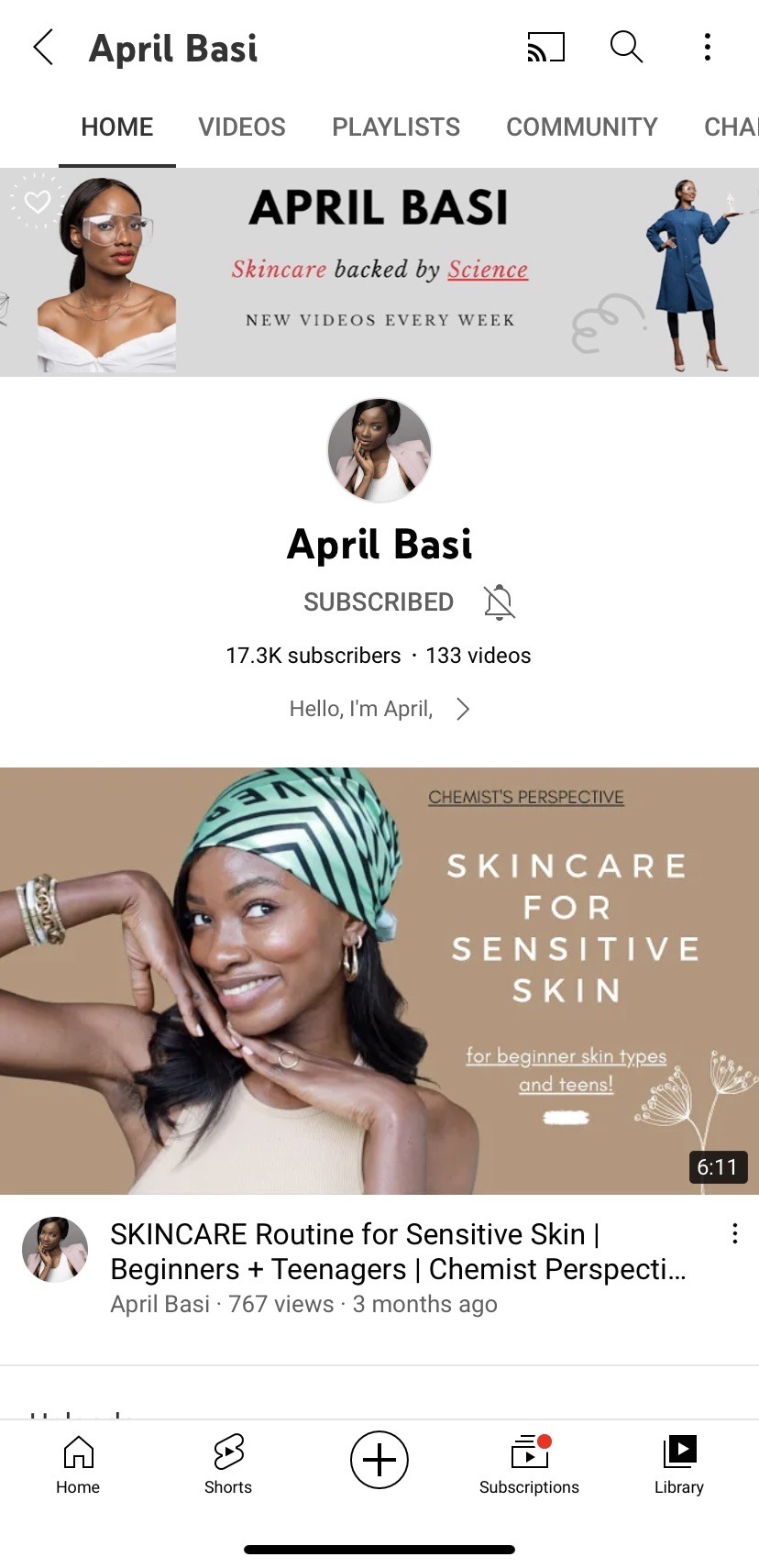




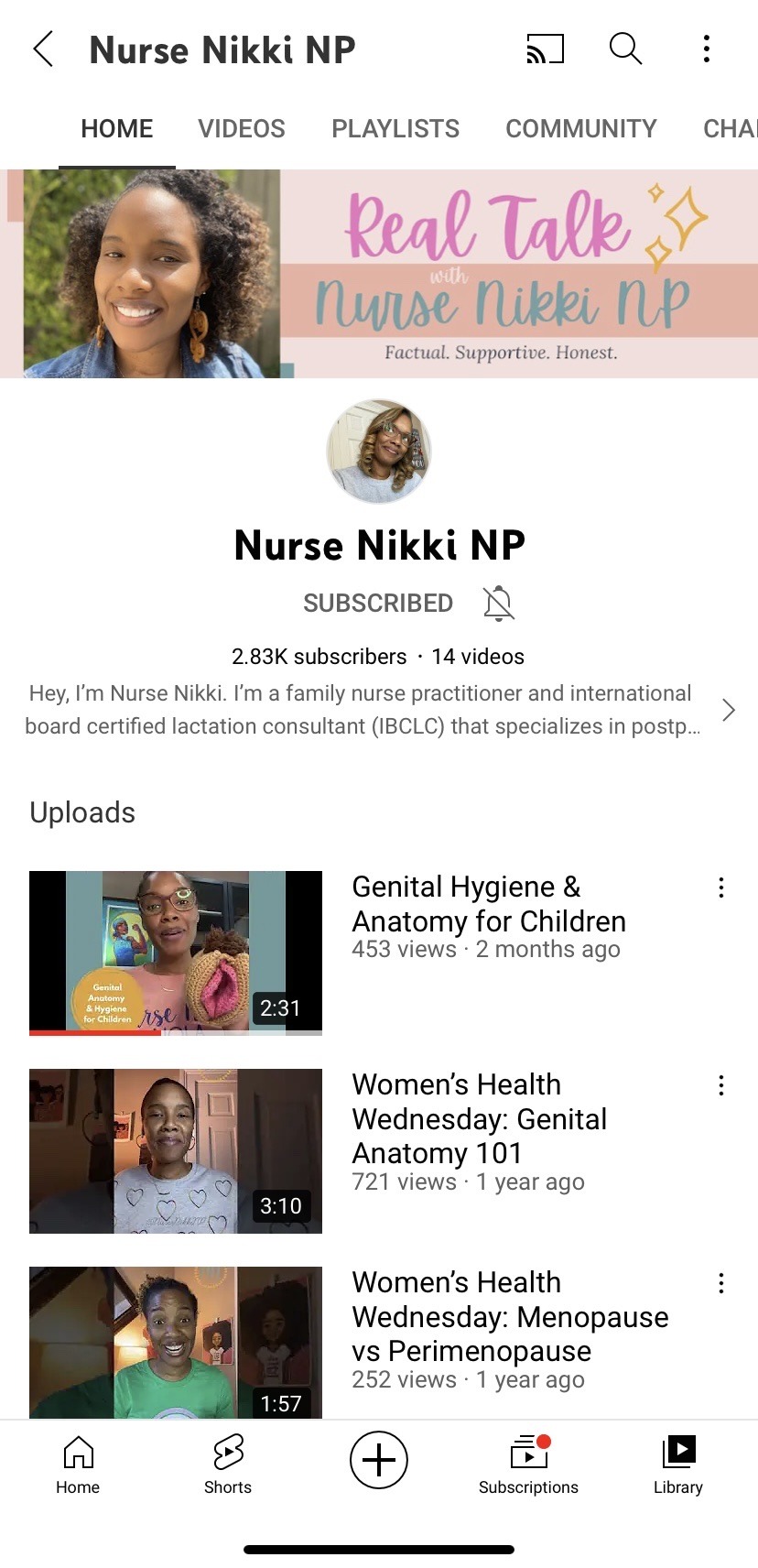
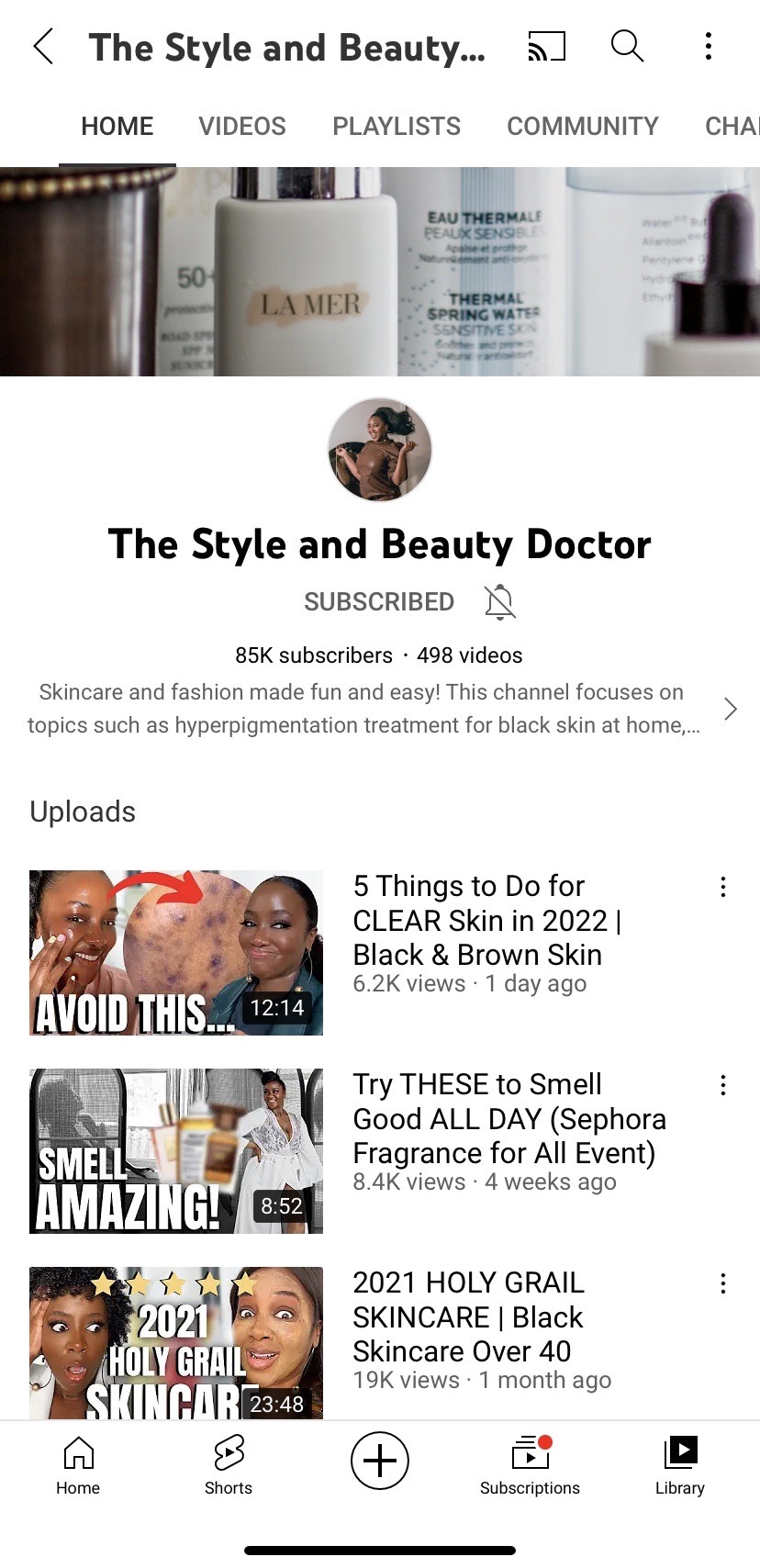


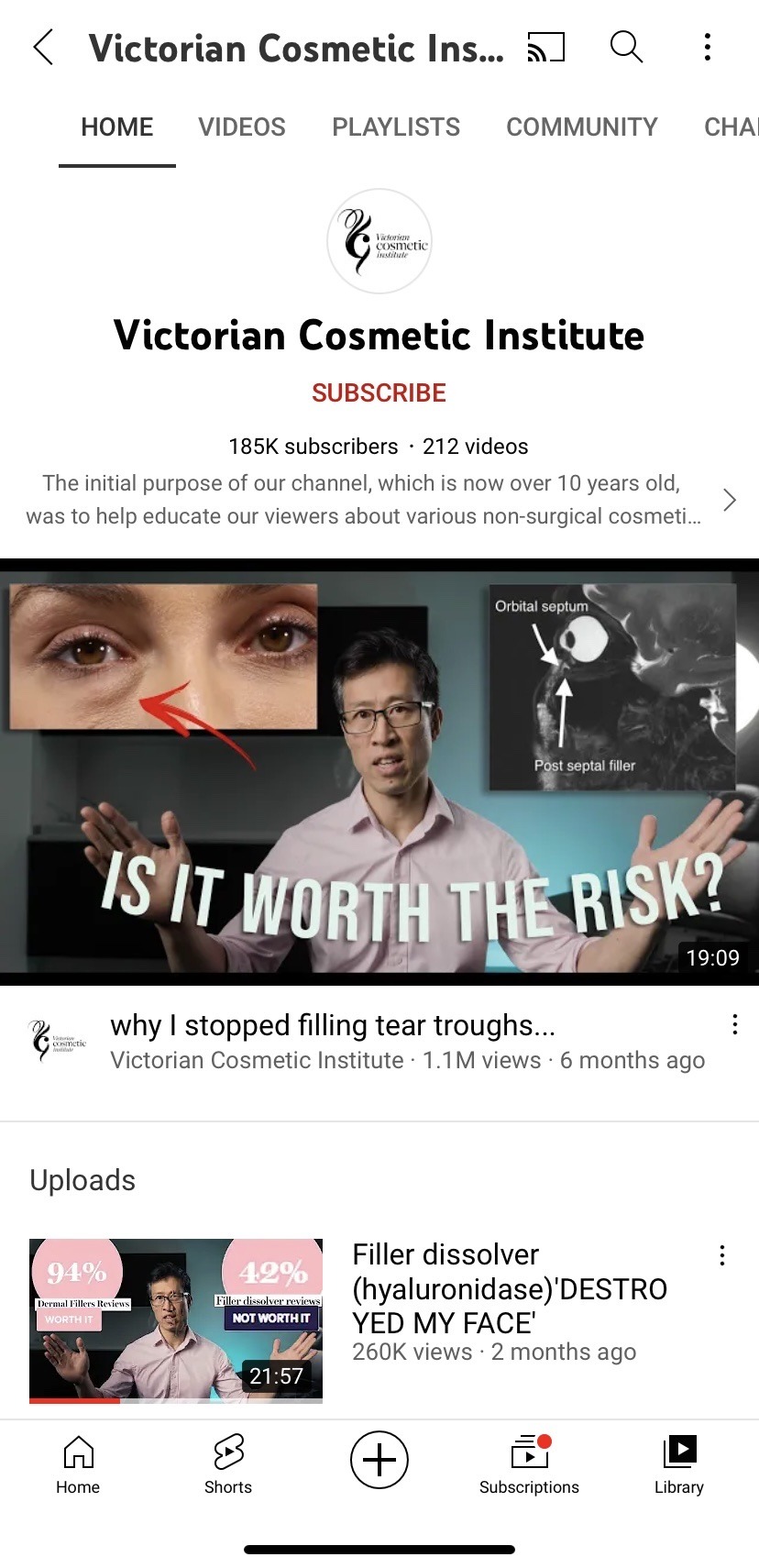
2K notes
·
View notes
Text








“you okay?”
no I just want to drown here forever
11K notes
·
View notes
Text
small things to add to a hand written letter:
a teabag of your favourite tea
heart shaped note with cute drawings
stickers on the outside of the letter, and inside
handmade paper doll
small print or postcard
a sketch or a little painting or a poem
glitter or sequins or pearls or buttons
small candies or bubblegum
cut out magazine pictures or articles
folded paper, like origami
textile like small ribbons or clothing patches
coins or flat things found in a souvenir shop
pressed flower or leaf
156K notes
·
View notes
Text
How to learn a language when you don’t know where to start:
General Plan:
Weeks 1 and 2: Purpose:
Learn the fundamentals sentence construction
Learn how to spell and count
Start building a phrase stockpile with basic greetings
The Alphabet
Numbers 1 - 100
Subject Pronouns
Common Greetings
Conjugate the Two Most Important Verbs: to be and to have
Basic Definite and Indefinite Articles
Weeks 3 and 4: Purpose:
Learn essential vocabulary for the day-to-day
Start conjugating regular verbs
Days of the Week and Months of the Year
How to tell the time
How to talk about the weather
Family Vocabulary
Present Tense Conjugations Verbs
Weeks 5 and 6: Purpose:
Warm up with the last of the day-to-day vocabulary
Add more complex types of sentences to your grammar
Colours
House vocabulary
How to ask questions
Present Tense Conjugations Verbs
Forming negatives
Weeks 7 and 8: Purpose:
Learn how to navigate basic situations in a region of your target language country
Finish memorising regular conjugation rules
Food Vocabulary and Ordering at Restaurants
Money and Shopping Phrases
Present Tense Conjugations Verbs
Weeks 9 and 10: Purpose:
Start constructing descriptive and more complex sentences
Adjectives
Reflective verbs
Places vocabulary
Weeks 11 and 12: Purpose:
Add more complex descriptions to your sentences with adverbs
Wrap up vocabulary essentials
Adverbs
Parts of the body and medical vocabulary
Tips for Learning a Foreign Language:
Learning Vocabulary:
What vocabulary should I be learning?
There are hundreds of thousands of words in every language, and the large majority of them won’t be immediately relevant to you when you’re starting out.Typically, the most frequent 3000 words make up 90% of the language that a native speaker uses on any given day. Instead try to learn the most useful words in a language, and then expand outwards from there according to your needs and interests.
Choose the words you want/need to learn.
Relate them to what you already know.
Review them until they’ve reached your long-term memory.
Record them so learning is never lost.
Use them in meaningful human conversation and communication.
How should I record the vocabulary?
Learners need to see and/or hear a new word of phrase 6 to 17 times before they really know a piece of vocabulary.
Keep a careful record of new vocabulary.
Record the vocabulary in a way that is helpful to you and will ensure that you will practice the vocabulary, e.g. flashcards.
Vocabulary should be organised so that words are easier to find, e.g. alphabetically or according to topic.
Ideally when noting vocabulary you should write down not only the meaning, but the grammatical class, and example in a sentence, and where needed information about structure.
How should I practice using the vocabulary?
Look, Say, Cover, Write and Check - Use this method for learning and remembering vocabulary. This method is really good for learning spellings.
Make flashcards. Write the vocabulary on the front with the definition and examples on the back.
Draw mind maps or make visual representations of the new vocabulary groups.
Stick labels or post it notes on corresponding objects, e.g when learning kitchen vocabulary you could label items in your house.
How often should I be practising vocabulary?
A valuable technique is ‘the principle of expanding rehearsal’. This means reviewing vocabulary shortly after first learning them then at increasingly longer intervals.
Ideally, words should be reviewed:
5-10 minutes later
24 hours later
One week later
1-2 months later
6 months later
Knowing a vocabulary item well enough to use it productively means knowing:
Its written and spoken forms (spelling and pronunciation).
Its grammatical category and other grammatical information
Related words and word families, e.g. adjective, adverb, verb, noun.
Common collocations (Words that often come before or after it).
Receptive Skills: Listening and Reading
Reading is probably one of the most effective ways of building vocabulary knowledge.
Listening is also important because it occupies a big chunk of the time we spend communicating.
Tips for reading in a foreign language:
Start basic and small. Children’s books are great practice for beginners. Don’t try to dive into a novel or newspaper too early, since it can be discouraging and time consuming if you have to look up every other word.
Read things you’ve already read in your native language. The fact that you at least know the gist of the story will help you to pick up context clues, learn new vocabulary and grammatical constructions.
Read books with their accompanying audio books. Reading a book while listening to the accompanying audio will improve your “ear training”. It will also help you to learn the pronunciation of words.
Tips for listening in a foreign language:
Watch films in your target language.
Read a book while also listening along to the audio book version.
Listen to the radio in your target language.
Watch videos online in your target language.
Activities to do to show that you’ve understood what you’ve been listening to:
Try drawing a picture of what was said.
Ask yourself some questions about it and try to answer them.
Provide a summary of what was said.
Suggest what might come next in the “story.”
Translate what was said into another language.
“Talk back” to the speaker to engage in imaginary conversation.
Productive Skills: Speaking and Writing
Tips for speaking in a foreign language:
If you can, try to speak the language every day either out loud to yourself or chat to another native speaker whether it is a colleague, a friend, a tutor or a language exchange partner.
Write a list of topics and think about what you could say about each one. First you could write out your thoughts and then read them out loud. Look up the words you don’t know. You could also come up with questions at the end to ask someone else.
A really good way to improve your own speaking is to listen to how native speakers talk and imitate their accent, their rhythm of speech and tone of voice. Watch how their lips move and pay attention to the stressed sounds. You could watch interviews on YouTube or online news websites and pause every so often to copy what you have just heard. You could even sing along to songs sung in the target language.
Walk around the house and describe what you say. Say what you like or dislike about the room or the furniture or the decor. Talk about what you want to change.This gets you to practise every day vocabulary.
Tips for writing in a foreign language:
Practice writing in your target language. Keep it simple to start with. Beginner vocabulary and grammar concepts are generally very descriptive and concrete.
Practice writing by hand. Here are some things you can write out by hand:
Diary entries
Shopping lists
Reminders
What could I write about?
Write about your day, an interesting event, how you’re feeling, or what you’re thinking.
Make up a conversation between two people.
Write a letter to a friend, yourself, or a celebrity. You don’t need to send it; just writing it will be helpful.
Translate a text you’ve written in your native language into your foreign language.
Write a review or a book you’ve recently read or a film you’ve recently watched.
Write Facebook statuses, Tweets or Tumblr posts (whether you post them or not will be up to you).
Write a short story or poem.
Writing is one of the hardest things to do well as a non-native speaker of a language, because there’s no room to hide.
There are lots of ways to improve your writing ability, but they can be essentially boiled down to three key components:
Read a lot
Write a lot
Get your writing corrected
28K notes
·
View notes
Text
DARK HACKADEMIA
- scattered, ever-present chipped mugs of tepid black coffee
- one’s weird cluster of devoted online friends, connections originating back in some long-abandoned obscure forum
- learning new languages all the time. Greek, Latin, Python, Ruby, German, C#, French…
- living in a uniform, as you can’t be bothered: flat-footed sneakers, dull sweaters with worn-out elbows and long sleeves for pulling over your chilly fingers while you type. button-downs and hoodies.
- the late-night glow of old reading lamps and the terminal screen
- making your own secret chat servers, like post office boxes hidden in the woods
- lockpicking, bridge and tunnel hacking, breaking into the library late at night to read undisturbed
- whiteboarding in worn out notebooks, scribbling solutions on napkins when you think of the fix for That One Bug
- The X-Files, old sci-fi movies, or outdated cozy murder mysteries playing quietly in the background as you work
- playing Saint-Saëns or Satie as you code
- rifling through the bin of bits and bobs, looking for that one piece of hardware
- writing gems for funny little exploits and sending them to your friends
- staying up all night exploring abandoned websites, classic creepypasta, online unsolved mysteries
- mutual obsessions and infosec skills leading scooby-doo style online mystery-solving
671 notes
·
View notes












